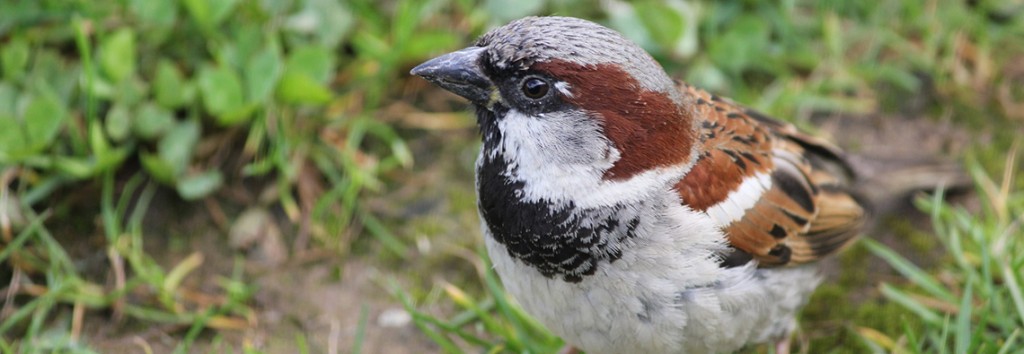
By Savannah grandfather [CC-BY-2.0 (http://creativecommons.org/licenses/by/2.0)], via Wikimedia Comm
The University of Arkansas student chapter of The Wildlife Society, in conjunction with the University of Arkansas Office for Sustainability and the Natural Systems Workgroup, would like your help in identifying areas on campus where birds striking glass windows might be a problem. The survey, originally conducted during the fall migration, now resumes for the six-week spring migration period.
You can become a citizen scientist by reporting any dead or stunned birds that you see on campus from now until the end of fall migration at the end of October. Migrating birds are particularly vulnerable to striking windows, as they are just passing through and are unfamiliar with the local landscape.
If you see a dead bird on campus, you can report its location by filing out this form. You can also submit a picture of the bird by emailing Dr. Kimberly Smith at kgsmith@uark.edu. Technically, it is illegal for someone to handle a migratory bird without a federal permit, so one of the members of The Wildlife Society chapter with the proper permits will retrieve the specimen. This survey will be repeated during spring migration and produce a report on bird strikes on the University campus for the Sustainability Council to consider.
Ornithologists estimate that up to 100 million birds are killed each year by collisions with windows, which usually involve small songbirds that may fall unnoticed to the ground. Sometimes the birds are merely stunned and recover in a few moments. Often, though, window hits lead to severe internal injuries and death. It is thought that birds hit windows because they see the landscape—trees, sky, clouds—reflected on the glass surface but do not realize that a hard, transparent surface lies between them and that apparent open space. Also, birds might see through a structure like a glass walkway and not see the panes of glass. It was recently reported that several hundred Cedar Waxwings were killed after hitting a glass walk way on our campus.
 A number of fairly easy solutions exist for reducing bird strikes: http://www.birdwatchingdaily.com/featured-stories/15-products-that-prevent-windows-strikes/ Other campus has had great success in reducing bird strikes on their campus, e.g. Temple University in Philadelphia (http://sustainability.temple.edu/use-crop-netting-reduction-migratory-bird-window-collisions).
A number of fairly easy solutions exist for reducing bird strikes: http://www.birdwatchingdaily.com/featured-stories/15-products-that-prevent-windows-strikes/ Other campus has had great success in reducing bird strikes on their campus, e.g. Temple University in Philadelphia (http://sustainability.temple.edu/use-crop-netting-reduction-migratory-bird-window-collisions).
